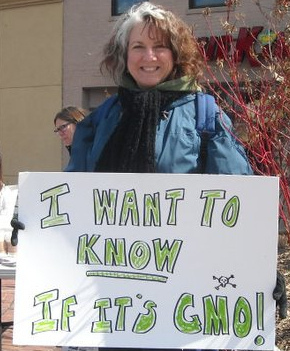
Herbicide Finding Intensifies Battle over GMO Labeling
More than two years after passing the nation’s first law requiring labels on most foods containing genetically engineered components, there are still no labels for Genetically Modified Organisms – GMOs – in Connecticut or anywhere else in the United States.
The food and biotech industries are fighting Connecticut's law and two others in Vermont and Maine with federal legislation that would nullify (preempt is the official term) all three as well as any future attempts at GMO labeling. The bill would also set national standards for labelling food as non-GMO, essentially codifying the existing voluntary practice of labeling those foods.
November 9, 2015 | Source: the CT Mirror | by Jan Ellen Spiegel
More than two years after passing the nation’s first law requiring labels on most foods containing genetically engineered components, there are still no labels for Genetically Modified Organisms – GMOs – in Connecticut or anywhere else in the United States.
The food and biotech industries are fighting Connecticut’s law and two others in Vermont and Maine with federal legislation that would nullify (preempt is the official term) all three as well as any future attempts at GMO labeling. The bill would also set national standards for labelling food as non-GMO, essentially codifying the existing voluntary practice of labeling those foods.
But GMO labeling advocates now have some new ammunition for a counter-offensive. One of the key reasons for developing GMO crops in the U.S. has been to make them resistant to weed-killers – primarily Monsanto’s herbicide Roundup — which are used to kill weeds and other undesirable plants in and around fields where the food crops are grown.
In March, the International Agency for Research on Cancer (IARC), which is part of the World Health Organization, declared the active ingredient in Roundup – glyphosate – a “probable carcinogen.” Its use is being reviewed by the Environmental Protection Agency, and in September California announced it would begin labeling products with glyphosate as carcinogenic.
“We are outraged with this assessment,” Dr. Robb Fraley, Monsanto’s chief technology officer, said in a statement at the time. The statement also called the information “inconsistent” with decades of safety reviews, and the company offered multiple web pages with dozens of links to documentation and other material. “This result was reached by selective ‘cherry picking’ of data and is a clear example of agenda-driven bias,” the Fraley statement said.
Since then, Monsanto has asked Intertek Scientific and Regulatory Consultancy — an international consulting firm that, among other things, provides expertise on food science regulatory issues — to convene a panel to review IARC’s findings.
The glyphosate designation came as another worrisome piece in the GMO puzzle for those in the academic food science community, public officials and other experts who view the GMO approval and oversight process as flawed and secretive. They believe it adds to ongoing safety concerns and has chilling implications for the food supply in the age of climate change.
